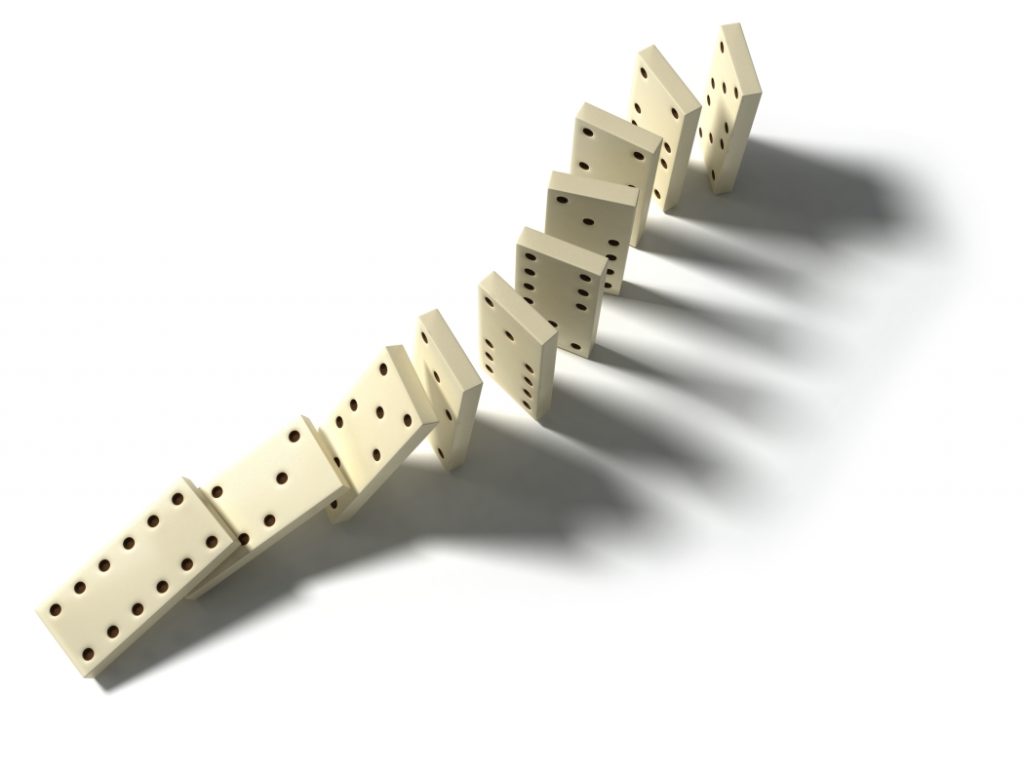Mar 18, 2021 | Buddhism Blog |
All compounded things in the world are changeable.
They are not lasting.
Work hard to gain your own liberation.
Practice diligently.
These are Buddha’s last words and the first part reminds us that all compounded things are impermanent. If we keep this in mind we will not get attached to things, which in turn will reduce our suffering.
The second part, which is the most interesting, says we should work towards our own liberation. Here the word liberation means an end to our suffering. This means we have to look within, take responsibility for our own actions and do the hard work ourselves.
It does not say liberation can be found outside of us, we should blame karma for what is happening in our lives or we have to hand our liberation over to some guru.
I believe we need teachers to help us along the path, but ultimately, we have to decide ourselves what path suits us best and which parts of Buddhism we decide to follow. It doesn’t mean we have to take on other people’s culture or superstitions. We also must decide how much time we devote to that path. The ball is in our court and no one can end our suffering for us.
The final part says that we should practice diligently. It is of very little benefit to simply understand Buddha’s teaching intellectually. They have to be practiced with great effort.
We have to firstly understand the power of the three poisons – clinging desire, aversion/attachment and delusion. Then we need to ensure oou minds are not clouded by these poisons. That is our starting point and something we need to be aware of throughout this path.
We need to fully understand the four noble truths and implement them into our lives. This is a lifetimes work and not something to be taken lightly. The eightfold path, which is the fourth of the truths, is a something we need to constantly ensure we are following.
Meditation is an extremely important part of Buddhism and I would encourage you to learn and practice each day. Mindfulness is also important, even though, the word has been totally misused of late, the four foundations are important to understand and practice.
There are many things in our lives that can bring us suffering and Buddha pinpointed eight of them in the teaching called the eight worldly concerns. Again, it is important to ensure we are not being led astray by these concerns.
Compassion is important in all religions and Buddhism is no exception. But Buddhism does not just talk about that. In the four immeasurables, Buddha spoke about equanimity, kind-heartedness, compassion, and open-hearted joy. All of these help us breakdown the barriers we erect between different types of people.
One of the most difficult to understand but without doubt, one of the most important, is the concept of non-self. We spend so much of our time building our identities and so find it difficult to appreciate that there is no solid, permanent and independent self. I would encourage you to revisit this teaching regularly, so you can slowly understand its importance.
I wish you all the best on your Buddhist journey and hope that these fourteen teachings have helped you in some small way.
I will leave the last word to Buddha:
‘I say to you that these teachings of which I have direct knowledge and which I have made known to you — these you should thoroughly learn, cultivate, develop, and frequently practice, that the life of purity may be established and may long endure, for the welfare and happiness of the multitude, out of compassion for the world, for the benefit, wellbeing, and happiness of all beings.’
You can read more blogs, listen to podcasts, watch videos and practice guided meditations on the Buddhism Guide app. Available from the Apple Store and Google Play.
If you would like to become a supporter of Buddhism Guides work, such as podcasts, blogs, videos and guided meditation practices, please visit here. You can support for as little as $2 a month.
Apr 21, 2020 | Buddhism Blog |
Buddhism
does not talk about destiny or god’s will. Instead, they understand that things
happen through a complex web of causes and effects.
Let’s start at the basics. If you plant a rice seed, you will get rice. You won’t get wheat or tomatoes. So, the cause of rice is the rice seed. Things do not just appear without a cause. For example, look at yourself, you are here because of our parents. You didn’t just miraculously appear. You were born because of cause and effect. Now, all of this is probably easy to understand, but it’s when we go a bit deeper people start to get confused.
When
I teach this subject people always say, ‘If everything comes from a cause, why
did this happen or why did that happen.’ The truth is there isn’t usually just
one cause. Let’s take the rice seed again. The rice planet cannot just grow
from a seed. It needs soil, water, air and many other things. So, there isn’t just
one cause. There are so many causes each crossing over each other like a giant
spider’s web. This is why it is quite often impossible to find out why things
did happen. But that isn’t good enough for us humans, we want answers and that
is why it is easier to dismiss things as simply destiny or god’s will than it
is to understand cause and effect.
I like this teaching because it stops me playing the blame game
Let
me give you an example. Ruth is always woken up at 7.00 a.m. by her electric
alarm clock. She washes, gets dressed, has a cup of coffee and is out the door
at 7.45. She walks down the road to the bus stop, which usually takes 10
minutes, and she crosses the main road and catches the 7.55 bus to work.
On
this particular morning, her alarm did not go off because there was a power
cut. This meant she didn’t get up till 7.30. She quickly washed, dressed and
ran out of the door at 7.50. It was raining so she had to go back inside for
her umbrella. This made her even more late. As she was running down the road,
she saw the bus pull up. At the same time, Dave was going into work early
because he had a lot to do. His wipers needed replacing and so he couldn’t see
very clearly. Ruth in her desperation to catch the bus, ran out in front of
Dave. He didn’t see her and so ran her over.
Now,
Ruth’s friends will say the cause of the accident was Dave’s fault, and his
friends would say it was caused by Ruth. But let’s look at all the causes that
led to the accident. The power cut, alarm clock not working, Ruth getting up
late, it was raining, so she had to go back inside to get her umbrella, Dave
going into work early, his wipers not working properly, Ruth running in front
of him and him not seeing her. So, you can see it is not always clear what
causes things to happen. All we can say is that there was a cause or causes and
it wasn’t destiny or god’s will.
Another
thing people tend to say is, especially if they are talking about karma, which
is just another way of saying cause and effect, ‘If you do good, good things
will happen to you, and if you do bad, bad things will happen to you.’ Well,
this would be true if we all lived in our own personal bubbles, but we don’t. What
you do will affect others, and what they do will affect you.
This
is why good things happen to bad people and bad things happen to good people.
It is because we all get affected by other people’s actions. So, the cause of
your bad fortune may not even be your fault. Here is an example, you may be the
best driver in the world and you always stop at red lights and you never go
above the speed limit. Again, that would be fine if you drove around in a
bubble. But we don’t and we could end up having an accident because of someone
else’s bad driving. So, the cause of your accident was their dangerous driving
of someone else. The effect was you ended up with a damaged car.
Once you understand the concept of cause and effect, so many other things
start to fall into place
For
me, I like this teaching because it stops me playing the blame game. I
understand that there is not going to be one thing or person I can say caused
what happened. So, that stops me asking why, why, why. It also teaches me that
whatever action I take there will be a consequence. So, I always think before I
act.
I
understand this concept may seem a little difficult to understand at first, so
I would suggest you contemplate it during your meditation practice. While
meditating ask yourself questions like this:
Can
things appear without a cause?
Can
things have more than one cause?
Do
my actions have consequences?
I can assure you, once you understand the concept of cause and effect, so many other things start to fall into place.
You can read more blogs, listen to podcasts, watch videos and practice guided meditations on the Buddhism Guide app. Available from the Apple Store and Google Play.
If you would like to become a supporter of Buddhism Guides work, such as podcasts, blogs, videos and guided meditation practices, please visit here. You can support for as little as $2 a month.

